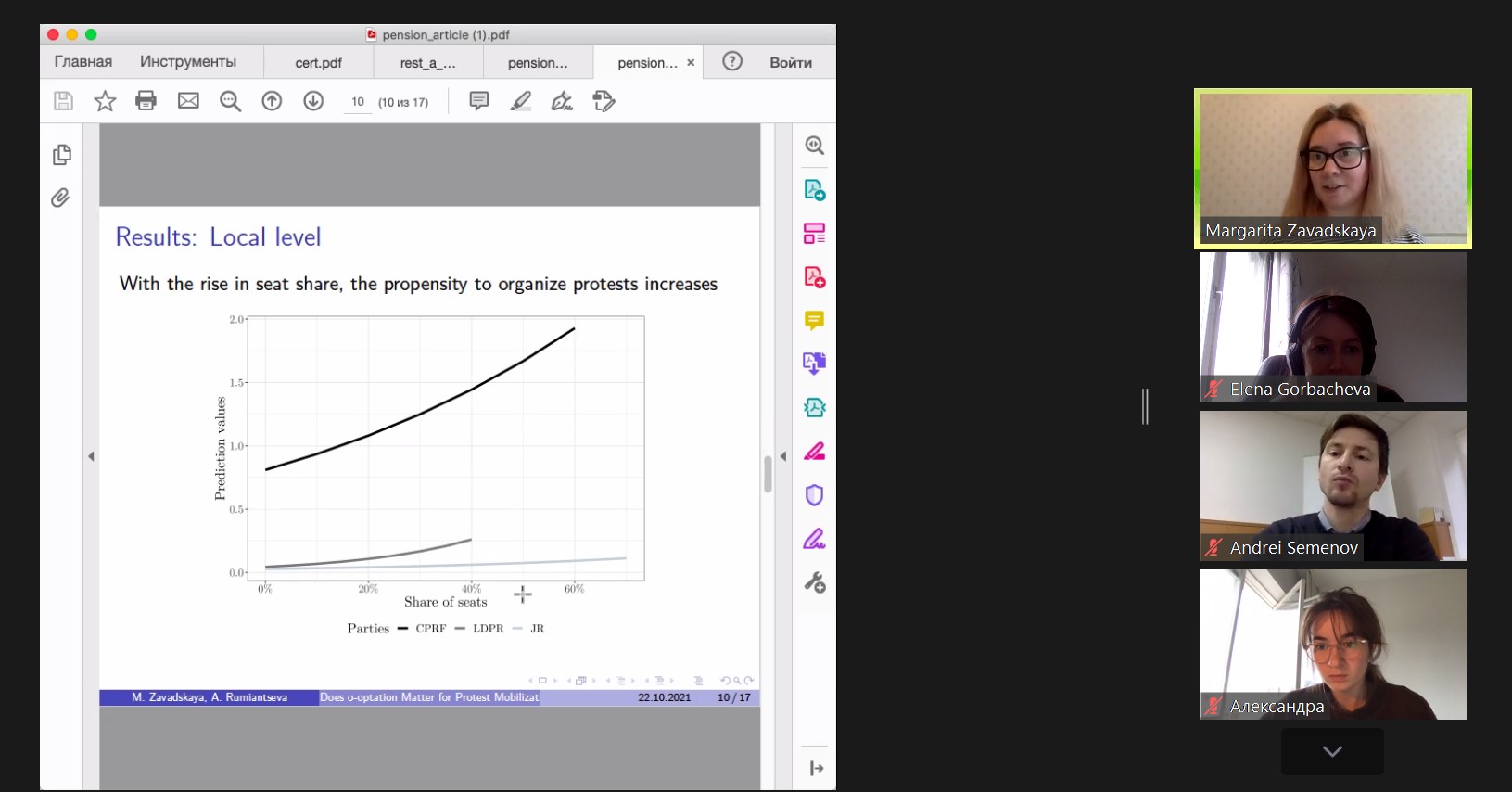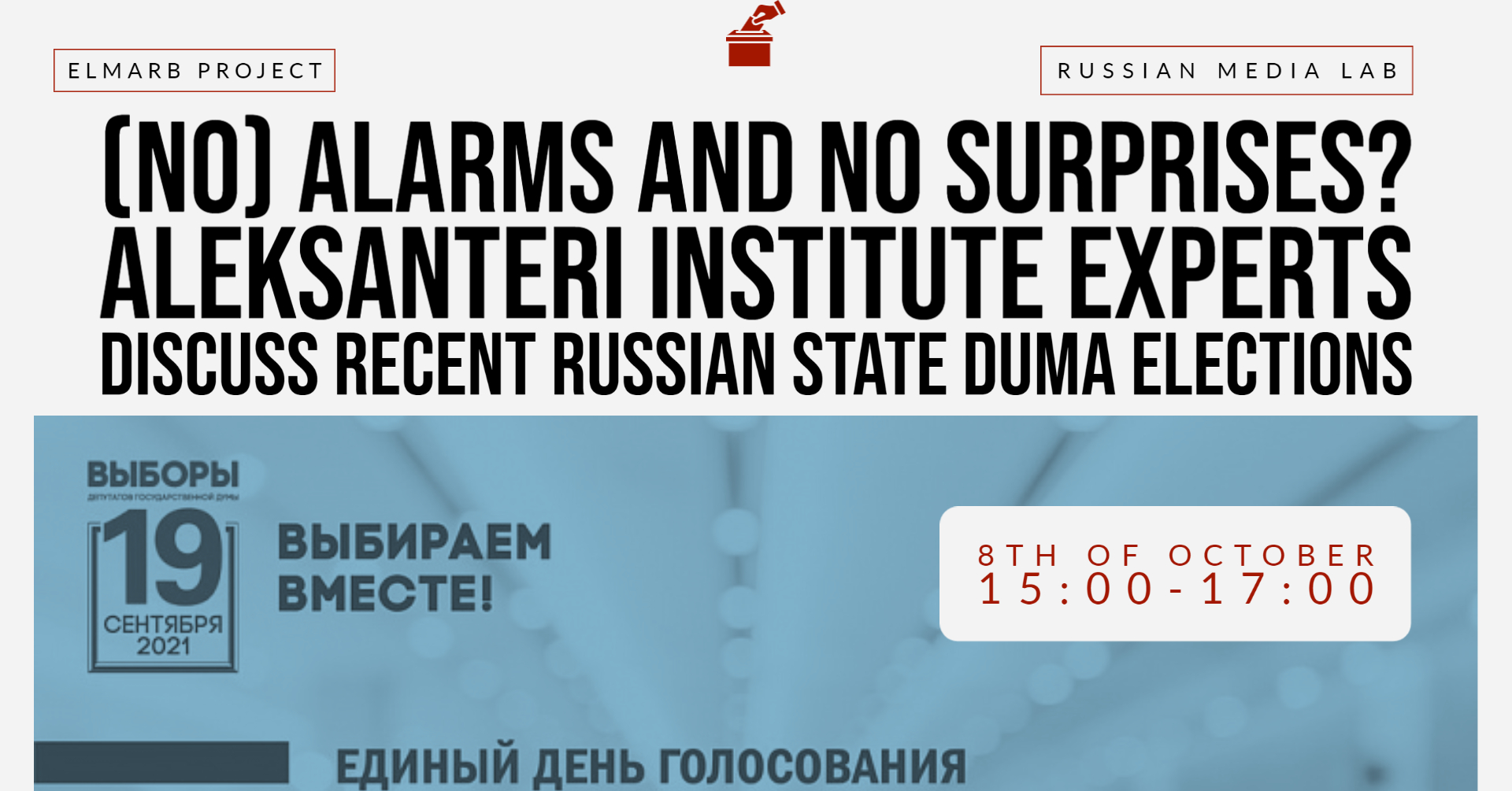Today we held another ElMaRB seminar, during which Margarita Zavadskaya and Alexandra Rumyantseva, data analyst at the Center for Advanced Governance (Moscow) and lecturer at the EUSP presented the research they have been working on – ‘Does co-optation matter for protest mobilization? Evidence from the Russian protests against the pension reform in 2018’. Andrei Semenov, Senior Researcher at the Center for Comparative History and Politics at Perm State University and Aleksanteri Institute former Visiting Researcher, acted as a discussant.

The Russian pension reform in 2018 put an end to the ‘rallying around’ the political leader V. Putin and pulled down his rating back to the usual 60%. The reform revised the retirement age and suggested a five-year increase from 55 to 60 for women and from 60 to 65 for men. This lead to a massive outcry and protests in almost all Russian regions. Tens of thousands of protesters took into the streets claiming that the state reneged on its basic social obligations and that given the average life expectancy it is unlikely to most of the would-be retirees would live up to the pension age at all.

